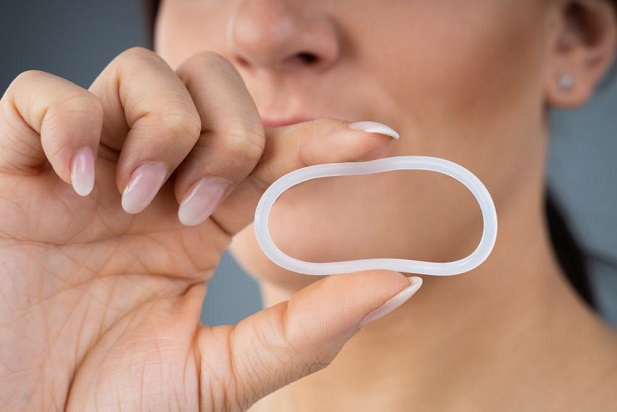A monthly vaginal ring containing the antiretroviral drug dapivirine, an HIV prevention method whose approval for use in Uganda is underway is proving to be safe for use by breastfeeding mothers. This is according to the results of a study released Wednesday and presented at the ongoing Conference on Retroviruses and Opportunistic Infections (CROI 2023) in Seattle.
Code named, the B-PROTECTED (MTN-043) study which was conducted in Malawi, South Africa, Uganda, and Zimbabwe found that while the drug could be detected in breastmilk, the absolute levels were very low and the amount of drug ingested by babies even lower, posing no safety concerns.
“We believe this favorable safety profile, along with the data demonstrating extremely low concentrations of dapivirine transferred to infants, supports the inclusion of breastfeeding populations in global and national guidelines on the use of the dapivirine vaginal ring for HIV prevention,” said Jennifer E. Balkus an associate professor of epidemiology at the University of Washington School of Public Health.
Scientists attending the meeting from across the globe said breastfeeding time constitutes a heightened risk of infection and that it is important for women to be handed prevention options at such a time.
Maxie Owor, the study’s protocol chair and an investigator based at the Makerere University-Johns Hopkins University (MU-JHU) Research Collaboration in Kampala says the risk of acquiring HIV during breastfeeding is estimated to be up to four times higher compared to other periods in life.
“B-PROTECTED and its companion study, DELIVER (MTN-042), were designed to provide the kind of information regulatory authorities and national programs would need to consider making the dapivirine ring available to breastfeeding and pregnant women and enable health care providers, and women themselves, to make informed choices about whether to use the ring while pregnant or breastfeeding”, she said.
Researchers also reported results to date from the ongoing DELIVER study finding no safety concerns with ring used during the third trimester of pregnancy. B-PROTECTED enrolled 197 breastfeeding women and their 6- to 12-week-old babies. Women were randomly assigned to use either the monthly dapivirine vaginal ring or Truvada as daily oral PrEP (short for pre-exposure prophylaxis for three months, with three times as many participants assigned to use the dapivirine ring.
148 women used the dapivirine ring where they inserted a new ring each month and 49 women were assigned to use Truvada as daily oral PrEP.
Both mothers and their babies were followed for an additional two weeks after they stopped using the study product. At different time points during the study, researchers assessed how much drug from each product could be measured in blood samples from the mothers, how much was present in breast milk, and how much could be measured in blood samples from the babies.
However, BPROTECTED is the first study of the dapivirine ring in women who are actively breastfeeding. An earlier study was conducted among sixteen participants in the US who were no longer breastfeeding their babies but still producing milk.
In these, just as the newly released results, dapivirine was detected at very low concentrations in breast milk and there were no safety concerns after 14 days of using the ring.
According to a statement released on Wednesday, the study was designed so that babies would not be exposed to the drug, but in the new study, the amount of drug infants was exposed to via breast milk was even lower than expected.
Drug levels for Truvada were low as well, confirming what has been seen in other studies.
The monthly dapivirine vaginal ring, which was developed by the non-profit International Partnership for Microbicides (IPM), received a positive scientific opinion from the European Medicines Agency in July 2020 for its use by women at high risk for HIV who cannot use daily oral PrEP, and in 2021, WHO recommended the ring as an additional prevention option for women.
–URN





